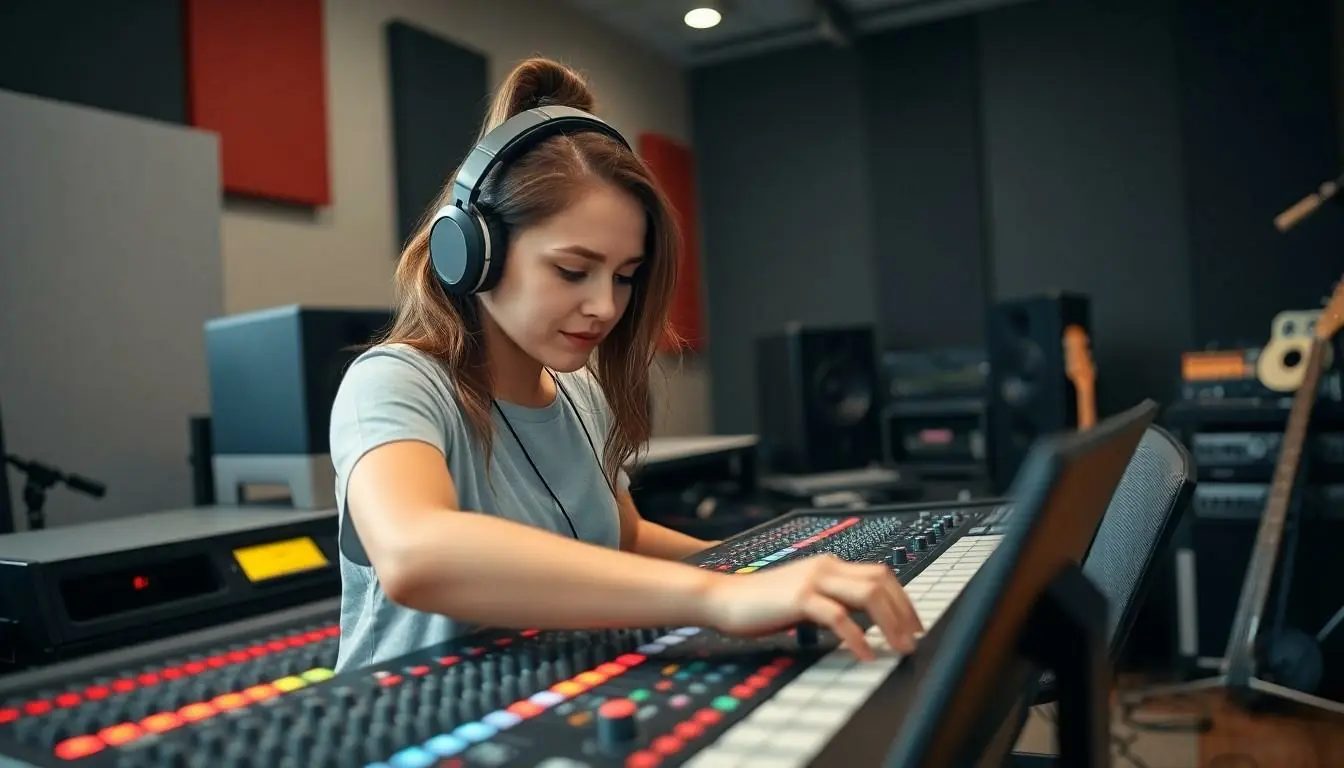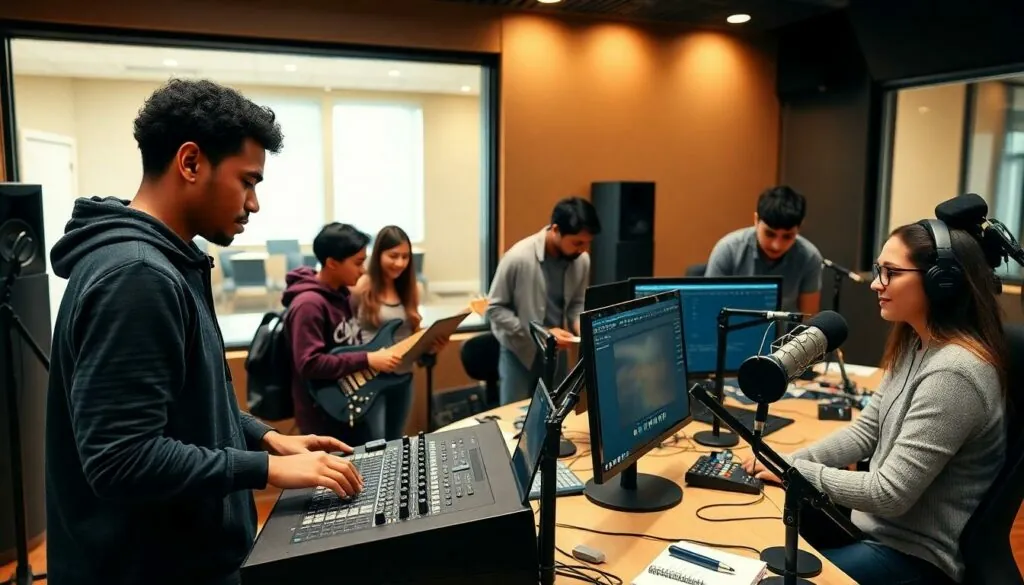Table of Contents
ToggleIn a world where everyone’s a wannabe DJ or podcasting guru, standing out in the audio tech crowd can feel like trying to find a needle in a haystack. But fear not! An audio technology certificate is your golden ticket to mastering the soundscape. It’s like having a backstage pass to the concert of life, where you’ll learn the ins and outs of sound design, recording, and production.
Overview of Audio Technology Certificate
Pursuing an audio technology certificate provides individuals with essential knowledge and practical skills for success in the competitive audio industry. This certification not only enhances expertise but also increases job prospects in areas such as sound engineering and production.
Scope of the Program
The program covers a wide range of topics, including audio recording techniques, sound design principles, and digital audio workstation (DAW) proficiency. Coursework often includes hands-on labs and projects that allow students to apply theoretical knowledge. Various areas of specialization may include music production, live sound, and post-production for film and television. Students explore both technical and creative aspects, enabling them to develop a well-rounded understanding of audio technology.
Skills Acquired
Graduates of the program gain vital skills that enhance their employability in the audio field. Technical skills include proficiency in audio editing software, mixing, and mastering techniques. Creativity is also fostered, allowing graduates to excel in sound design and composition. Networking abilities develop as students collaborate on projects, enhancing their industry connections. Problem-solving skills sharpen through real-world scenarios that require quick and effective solutions. Overall, these competencies equip graduates for diverse roles within the audio technology sector.
Benefits of Pursuing an Audio Technology Certificate

Pursuing an audio technology certificate provides distinct advantages in the audio industry. It cultivates essential skills and knowledge, allowing individuals to stand out among industry peers.
Career Opportunities
Graduates with an audio technology certificate access diverse career opportunities. Job roles include sound engineer, music producer, and audio technician. Positions often feature competitive salaries, with sound engineers earning an average of $55,000 annually according to the Bureau of Labor Statistics. Many graduates find employment in music studios, film production companies, or broadcasting networks. Networking opportunities arise through industry events, enabling connection with potential employers and collaborators. Experience gained during practical labs fosters a strong resume, increasing employability in various sectors within the audio field.
Industry Demand
Industry demand for audio technology professionals continues to rise. With the growth of streaming services and podcasting, the need for skilled technicians has expanded significantly. In 2022 alone, the job outlook for sound engineering increased by approximately 7%. Professionals skilled in digital audio workstations remain highly sought after, as many companies focus on high-quality production. Furthermore, advancements in technology create a constant need for expertise in emerging audio techniques. Acquiring an audio technology certificate positions individuals favorably, ensuring relevance and adaptability in a rapidly evolving industry.
Curriculum and Courses
The curriculum for an audio technology certificate encompasses a blend of core subjects and elective options, designed to provide comprehensive training in audio skills. Students engage with essential knowledge and practical application throughout the program.
Core Subjects
Core subjects cover fundamental aspects of audio technology. Topics include audio recording techniques that teach capturing sound effectively. Sound design principles provide an understanding of crafting and manipulating audio elements. Proficiency in digital audio workstations allows students to navigate and utilize popular software. Mixing and mastering techniques refine skills needed for producing high-quality sound. Hands-on labs and collaborative projects enhance the learning experience, allowing for immediate application of theoretical concepts.
Elective Options
Elective options offer students the chance to tailor their education to specific interests. Choices may include courses in music production, where students focus on song arrangement and artist collaboration. Sound for film or game audio delves into specialized techniques for various media. Advanced sound design provides opportunities for creativity and experimentation with unconventional audio sources. These electives complement core subjects, equipping graduates with diverse skill sets for various roles in the audio technology industry.
Admission Requirements
Admission requirements for an audio technology certificate involve specific criteria. Candidates must meet certain educational qualifications and demonstrate a passion for audio technology.
Prerequisites
High school graduation or equivalent certification stands as a fundamental requirement. Applicants might benefit from prior experience in music or sound-related subjects. Some programs recommend basic computer skills, particularly with digital audio workstations. Students should possess a strong interest in sound production and engineering, indicating their commitment to this field.
Application Process
The typical application process includes several key steps. First, applicants submit a completed application form, often available online. Next, they may need to provide transcripts showing educational achievements. Additionally, some programs seek letters of recommendation to assess the candidate’s suitability. An interview might also be part of the process, allowing applicants to express their enthusiasm and fit for the program. Timelines vary, so early submission is advisable to ensure careful consideration.
Pursuing an audio technology certificate opens doors to exciting career opportunities in a thriving industry. With the right skills and knowledge, graduates can stand out in roles like sound engineer or music producer. The hands-on experience and comprehensive curriculum prepare individuals to tackle real-world challenges effectively.
As the demand for audio professionals continues to grow, this certification not only enhances job prospects but also equips graduates with the creativity and technical expertise needed to excel. Embracing this educational path ensures that aspiring audio technologists remain competitive and relevant in an ever-evolving landscape.




